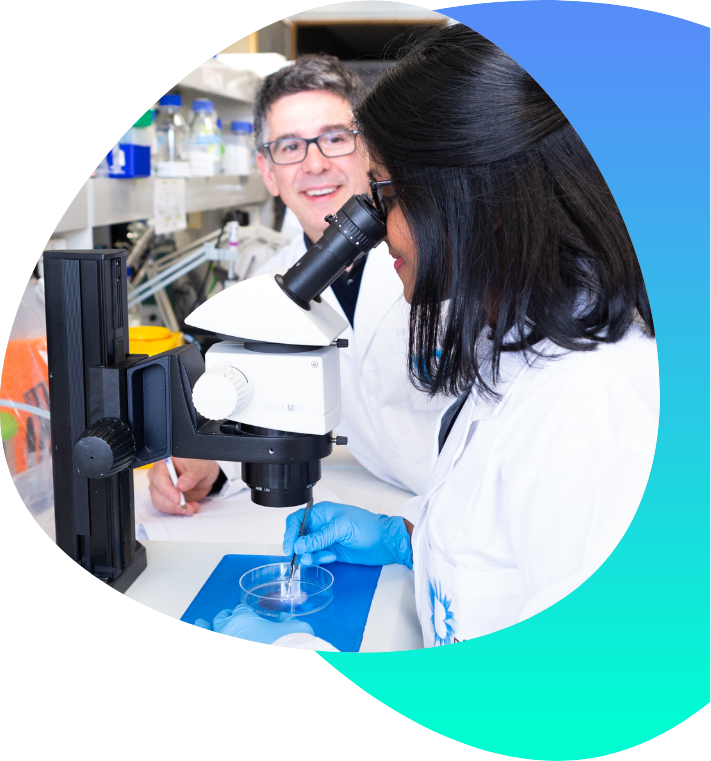Restoring hearing with therapeutics
Watch a 2 minute video on our hearing therapeutics research
Why are new treatments needed for hearing loss?
Hearing loss is a very common disability affecting nearly half a billion people worldwide and there are currently no drug treatments available.
Hearing loss usually arises from damage to the delicate sensory cells within the inner ear due to ageing or exposure to noise.
Unfortunately, there is no available treatment to halt the progression of hearing loss or to restore lost hearing function. The only available options for people with impaired hearing are hearing aids and cochlear implants, but these devices do not treat the hearing loss.
Hearing loss is associated with social isolation, depression, loneliness, and cognitive decline with the risk of developing dementia significantly increased with even a mild degree of hearing loss.
World-first drug treatment for hearing loss
Our researchers are developing a world-first treatment for hearing loss using nanotechnology to deliver a particular drug (called growth factors) to the inner ear.
It is well-established that delivering growth factors into the inner ear can repair damage to the sensory nerves that occurs with hearing impairment.
However, the lack of safe and effective technology to deliver these factors into the inner ear has limited clinical translation.
Groundbreaking technology developed by our researchers ‘loads’ growth factors into small drug carrying particles created through nano-engineering.
Once delivered into the inner ear, the drug can act to restore lost connections between the nerve fibres and sensory hair cells.
Next steps for the Bionics Institute research team
Our researchers have discovered that the particle delivery system can increase the lifespan and improve distribution of growth factors delivered to the inner ear.
The next step is to further develop and optimise this therapeutic technology and move towards a clinical trial to restore hearing in patients.
The research team
Bionics Institute researchers:
A/Prof Andrew Wise, Professor James Fallon, Associate Professor Rachael Richardson, Dr Yingjie Hu Dr Alex Thompson, Patrick Lam and Ella Trang.
Clinical collaborators:
Professor Frank Caruso (University of Melbourne) Dr Sherryl Wagstaff (Epworth Hospital), Dr Tim Adams (CSIRO).
